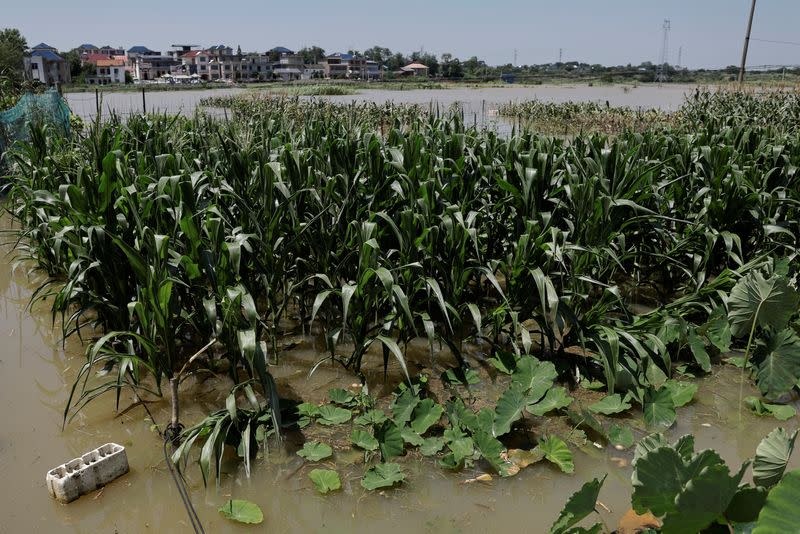Recent extreme weather badly damaged a large amount of farmland – about 6 million acres – in areas all across China.
That has a vow of support from the country’s central bank, which promised on Tuesday to provide an additional 100 billion yuan ($14 billion) to banks to support rebuilding areas devastated by floods.
The world’s largest agricultural importer has in recent weeks been plagued by Typhoon Gaemi lashing its eastern seaboard, record rains in its southern rice fields, and intense heatwaves across its northern corn and wheat yielding regions.
ALSO SEE: Firms May Abandon Net-Zero Plans Amid Carbon Offset Uncertainty
After state media reported Vice Premier Liu Guozhong’s call for China’s vast agricultural sector to push for a bumper harvest this autumn, the central bank announced it would issue a further 100 billion yuan from a re-lending facility to support 12 areas with flood prevention and reconstruction initiatives.
The People’s Bank of China (PBOC) will direct the funding towards Fujian, Guangdong, Henan, Heilongjiang, Hunan, Jilin, Jiangxi, Liaoning, Shaanxi and Sichuan provinces, a statement said.
It will also provide support the megacity of Chongqing and the Guangxi region, and to farmers, small and micro-sized firms and households, it said.
The PBOC had already issued a total of 2.61 trillion yuan in re-lending quotas to support agriculturalists and small firms.
“The PBOC will urge its branches in relevant provinces to make good use of the newly added re-lending quotas… ensure the funding needs of disaster-stricken enterprises and help them resume production,” it added.
China suffered 76.9 billion yuan ($10.1 billion) in economic losses from natural disasters last month, with 88% of those losses caused by heavy rains and floods, according to the Ministry of Emergency Management.
It was the biggest amount of losses for the month of July since 2021, ministry data showed.
Liu, during his visit to Liaoning and Jilin provinces over the weekend and Monday, urged officials to improve the agriculture sector’s capacity for disaster prevention and mitigation, according to the official Xinhua news agency.
He also “urged measures to drain accumulated water, promote the restoration of affected crops and guide farmers in replanting areas where crops were destroyed,” the report added.
Food imports may be needed
Producers from the US to Brazil and Indonesia will be watching to see whether China will increase its food imports to meet the demands of its 1.4 billion people.
A cut in domestic farm output could bolster the Asian giant’s demand for overseas supplies, which would impact global food supply and prices.
Beijing envisions 92% self-sufficiency in staple grains and beans by 2033, up from 84% during 2021-2023.
But an increase in the number of extreme weather events calls that into question.
Natural disasters in July affected almost 26.4 million people across China, with 328 either dead or missing. More than one million people were relocated, 12,000 houses collapsed and 157,000 more were damaged.
Some 2.42 million hectares (5.98 million acres) of crop area were also affected.
- Reuters with additional editing by Jim Pollard
ALSO SEE:
Extreme Weather Cost China More Than $10 Billion In July Alone
China’s Historic Heatwave Turns Deadly Amid Power Crunch Fears
Climate Crisis Has Cost China Billions Already This Year
China to Set Emission Quotas for Industries, Economic Planners
China Turns to Carbon Capture, Biomass For Coal Power Emissions
Critical China Factory Hubs Face Greatest Climate Change Risk
Solar Overcapacity Kills Projects, Fuels Bankruptcies In China
China Building More Solar, Wind Than Rest of World Combined
State Funding Puts China ’15 Years Ahead of US’ in Nuclear Power
























